
The Business of Fashion
Agenda-setting intelligence, analysis and advice for the global fashion community.

Agenda-setting intelligence, analysis and advice for the global fashion community.
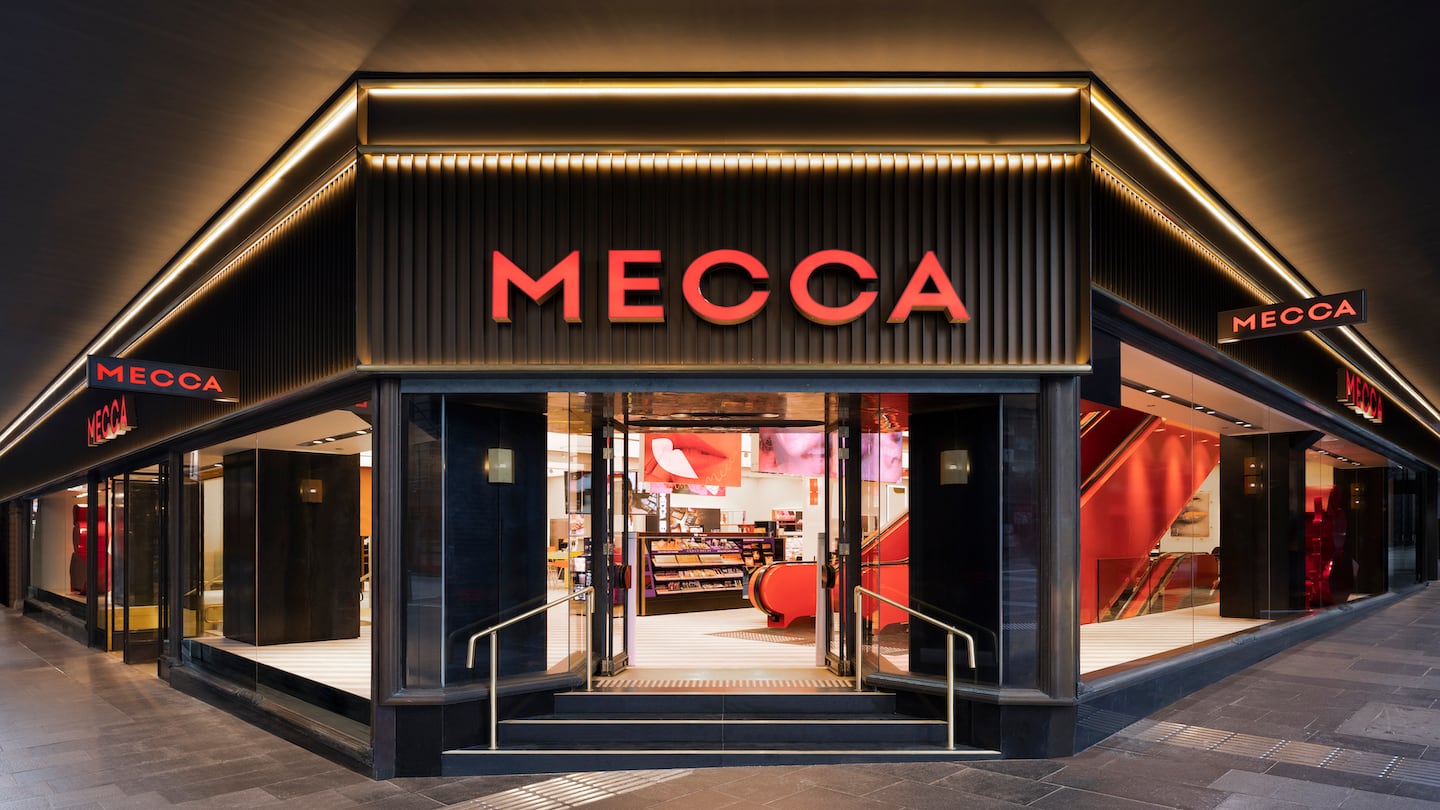
Australia is something of an anomaly among global beauty markets. Where in many countries, LVMH-owned Sephora has managed to gain pole position, or at least strike fear into the hearts of other multi-brand retailers, in Australia its growth has been stymied by one local player: Mecca.
It’s not just Sephora feeling the pressure. Department stores and specialty beauty outlets across the country struggle to compete with this behemoth. So much so that industry leaders now consider Mecca to be the leading prestige multi-brand beauty retailer in Australia.
“Mecca would absolutely be the market leader in beauty and skin care for that premium shopper,” said Craig Woolford, senior analyst, consumer sector at MST Marquee, an equities research company in Sydney. “A lot of that comes down to the physical footprint.”
With 108 stores across the Australia and New Zealand region, Mecca’s footprint is four times larger than Sephora’s 27 stores. The retailer also boasts more outlets than two leading department stores combined, outnumbering David Jones’ and Myer’s 100 outlets which are key distribution channels for global beauty brands. It’s an impressive size for a relatively small regional market.
ADVERTISEMENT
Mecca’s large footprint is viable, in part, because of the wide range of products and brands it has assembled over 26 years of trading. Being in the market for nearly three times longer than Sephora has given Mecca a significant incumbent advantage.
“Sephora has a great global brand, but frankly Mecca got there first in Australia,” Woolford explained. Sephora Australia declined to comment for this story and its parent does not break out earnings for the national market.
When Sephora entered Australia in 2014, international fast fashion brands such as Zara and H&M were also touching down. “There was a lot of concern [back then] that the internationals would trounce domestic competition [in both the beauty and fashion categories],” said Woolford.
“As a response, Mecca, which already had a good following, developed a larger store format that really became the destination for anyone looking for beauty products. [They] identified the right store locations in the right shopping centres and major central business district areas and...created a very strong market position.”
Breadth of merchandise has also been key. Mecca currently stocks everything from Aveda to Clinique and Estée Lauder to Mac. Around 70 percent of its 195 brands are exclusive to the retailer in Australia, across the makeup, skin care, hair care and fragrance categories, including Charlotte Tilbury, Augustinus Bader, Bumble & Bumble and Diptyque.
It’s worth noting that the number of brands and proportion of exclusives are comparable to Sephora in the Australian market. Another similarity with its French competitor is that Mecca invested extensively in private labels that became an important revenue stream. The retailer currently has four in-house brands: Mecca Cosmetica, Mecca Max, Kit and Mecca-ssentials.
What then sets this homegrown beauty giant apart from its competitors besides its footprint and time in the market?
“In a country where historically the consumer is fairly lo-fi when it comes to beauty, Mecca has always been unapologetically extra,” said former beauty editor Zoe Foster Blake, founder of Australian skincare brand Go-To, which has been sold in Mecca since 2019, five years after she launched it online as a direct-to-consumer business. “They live and breathe beauty.”
ADVERTISEMENT
That sense of urgency and single-mindedness is what helps make Mecca a “best-in-class” retailer, she added.
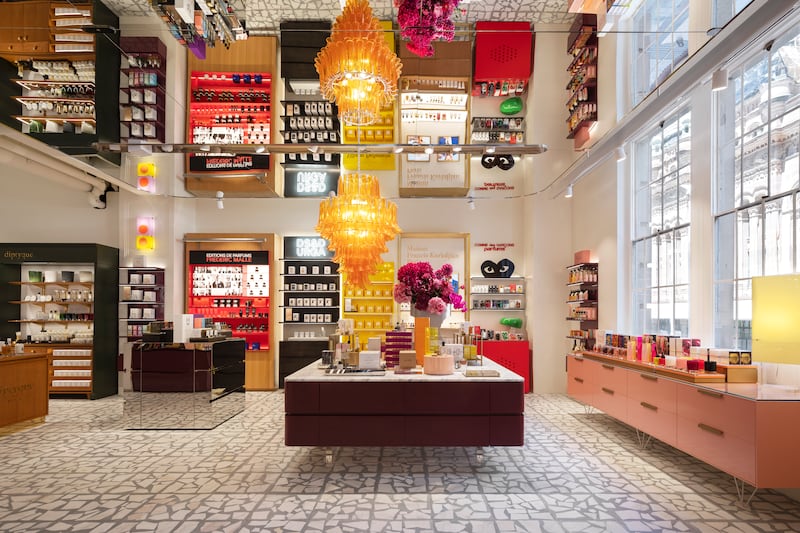
Kate Blythe, chief marketing officer at the retailer’s registered company, Mecca Brands Pty Ltd, suggests that those qualities manifest in several ways across the business, including store design.
“At Mecca it’s never cookie cutter, rolling out a store. Every single store is really unique and bespoke [to its environment],” said Blythe. “Within that, [at the mega flagships we] take beauty to the next level [by thinking] about all our categories in totally different ways [and] then bringing services into it.”
For example, instead of having just one or two skin treatment chairs, she said, a soon-to-open mega flagship will have a “whole aesthetic area” and, for its wellness offering, the retailer will create an entire apothecary. Previous upgrades have served the company well in a market where the beauty industry is evolving fast.
Stephanie Darling, a beauty editor with 35 years’ experience and the current beauty director for Sunday Life magazine, credits founder Jo Horgan with Mecca’s advances.
“She always had that element of keeping things fresh and reinventing the whole concept. She’s always first to market, she’s still got her finger on the pulse, always digging up new brands,” said Darling.
Under Horgan’s stewardship, Mecca has emerged as the beauty retailer with the largest market share in Australia, at 16.8 percent, according to this year’s “Cosmetic and Toiletry Retailing in Australia” report by IBISWorld covering the country’s specialty beauty retail market across both multi-brand and single-brand players. Sephora captured 4 percent of the market, putting it in third position behind the beauty-pharmacy chain Priceline at 5 percent.
The report is not a definitive competitor analysis in that it does not include pureplay e-commerce companies such as Adore Beauty, or department stores, and it also excludes major pharmacy player Chemist Warehouse, which Woolford cites as the leader at the “value end of the market”. It does, however, capture a meaningful snapshot of competitor dynamics and performance.
ADVERTISEMENT
Privately owned by founder Jo Horgan and husband Peter Wetenhall, who is co-CEO with Horgan, Mecca does not release financial information to the public. But according to the most recent set of accounts filed with the Australian Securities & Investments Commission in June, revenue for the year to December 2021 was AUD$688.9 million (US$446 million), up 20 percent on the previous year.
While Horgan did not divulge exact figures, she told BoF that revenue has increased by 2.5 times since 2019 to this year. That would suggest turnover is now around AUD$1.3 billion (US$840 million), based on the ASIC accounts for 2019 showing revenues of AUD$538.2 million.
“I think that [growth on that level] speaks to the loyalty of our customers,” says Horgan.
Jo Horgan launched Mecca in 1997, with a single store in the upmarket Melbourne suburb of South Yarra. It stocked seven prestige brands new to Australia, including Nars, Stila and Vincent Longo, and staff were trained to offer in-depth, brand-agnostic advice to customers, focusing on experience and education rather than pushing for immediate sales.
Back then, the market was dominated by two retail models: department store concessions, largely made up of luxury and prestige brands with staff loyal to that one brand, and the pharmacy model of buying off the shelf.
“At the start you couldn’t buy online, so people were blown away by those brands she brought in,” said Darling.
For Horgan, the initial concept was ambitious but simple: “to revolutionise the beauty experience and make it customer-centric,” she said. The goal remains the same today, “[but] now we are dealing with bigger doors, more states, more categories, more digital offerings, different ways to connect with customers. So how we operate can change, but the north star… remains the same.”
At the prestige end of the Australian beauty market, Mecca claims that it has a 30 percent share. While BoF could not independently corroborate this figure, there is no doubt that Mecca’s growth has upended the market segment that was traditionally dominated by two heritage department stores, 185-year-old David Jones, and 123-year-old Myer.
“The growth of floor space from Mecca over the last 10 years is in stark contrast to the reduced floorspace in department stores and speaks to a shift in market share from department stores to Mecca,” said Woolford.
David Jones, a privately owned company, does not release earnings; listed company Myer does not break out beauty segment earnings.
Mecca’s stores are divided into three types: Mecca Cosmetica, the original prestige boutique concept; Mecca Maxima, for the younger, digital native consumer; and Mecca, which brings the two concepts together under one roof. Notably, Mecca also has seven concessions within selected Myer flagships.
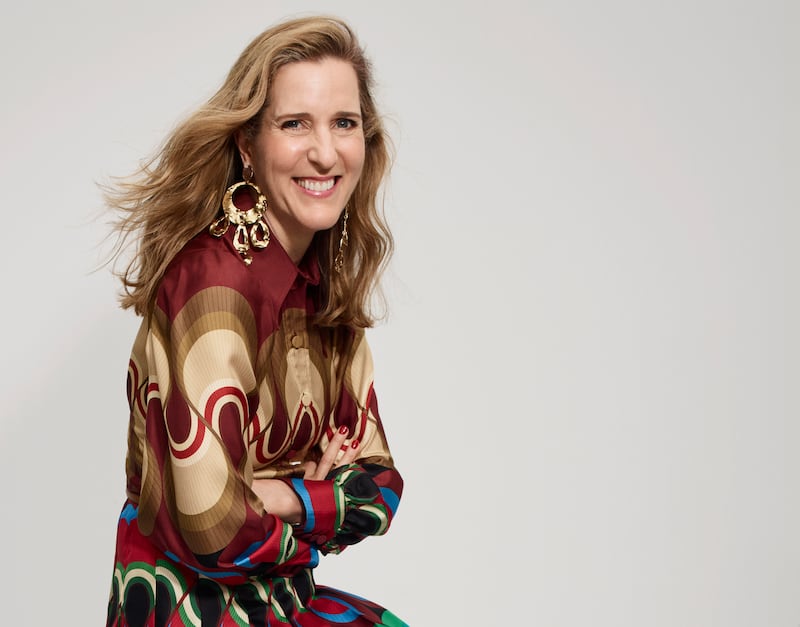
In November 2020, Mecca made perhaps its most audacious move yet. It opened what is said to be the largest beauty store in the southern hemisphere, in an iconic heritage location on George Street in Sydney’s central business district. Situated over three floors, it includes salon services such as blow dries and brow lamination, areas for workshops and events, and a “piercing lab” with Sydney-based cult jewellery brand Sarah & Sebastian.
Next year it will go one better, opening a 3000 sqm store in another heritage building on Melbourne’s central Bourke Street Mall, set to be one of the world’s biggest beauty stores. The rollout continues apace: Horgan says that the store footprint will increase by more than 70 percent in the next three years across Australia and New Zealand.
While investment in retail is clearly a priority, it’s the company’s focus on customer engagement (both in-store and online), education and innovation that industry insiders consider to be its unique selling points.
“Perhaps the biggest standout area is their passion for their staff — making sure that their selection and investment in staff is a consistent primary objective,” says Paul Zahra, CEO of the Australian Retailers Association, and a former CEO of David Jones.
The company reinvests 4 percent of revenue into education and engagement of its staff, a percentage that both Zahra and Woolford consider to be high for the local retail industry.
“This kind of employee investment is fundamental to the success of any retailer in recent years when we have seen some of the toughest conditions in decades with talent wars and labour shortages being so pronounced,” says Zahra.
Zahra says that while the in-store experience “has enormous X-factor, another standout area… has been their early embrace of the digital customer experience. Omnichannel retail has demonstrated its power as the only way to go across the recent decade, and Mecca were very early to the party with their launch of e-commerce in 2001.”
While Mecca did not divulge the percentage of online sales growth, it said that sales overall have doubled since 2020, when the company transformed the customer experience amid the Covid-19 pandemic. Virtual masterclasses with brand founders and customer hubs on Facebook were among a number of initiatives, while digital training modules developed during store shutdowns were later turned into ‘Meccaversity’, an online portal that has since opened up to customers on the website.
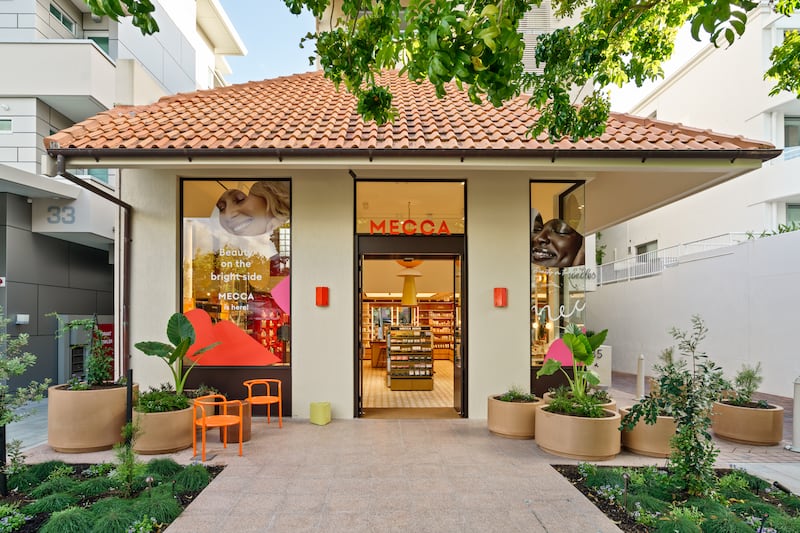
“Mecca places enormous emphasis on educating the customer,” said Foster Blake from Go-To, adding that it was one of the things that attracted her to the retailer. “That [element] was very important to me.”
The company’s investment in digital innovation continues to be a major focus, such a new CMS digital interface with headless architecture that Horgan believes will “transform the omnichannel approach”.
Industry insiders often cite Horgan’s all-encompassing approach to retail as one of the pillars of the company’s success.
“She is agile and always looking for new ways to drive the business forward,” said Barbara Calcagni, president of global brands at Shiseido Americas, overseeing Nars, Drunk Elephant and Tory Burch Beauty. “She’s an innovator who knows the beauty landscape is always changing and has reinvented the business time and time again.”
Calcagni, who has worked with Nars since 2008, added: “if you know Jo like I do, she can be very convincing.”
While Calcagni wouldn’t be drawn on the fact that elsewhere in the world Nars is stocked at Sephora, she calls the relationship between Nars and Mecca “very special.”
In addition to the company’s “exceptionally high-service customer experience, [its] brand-building and equity-driving activities and laser focus on sales,” she says that Mecca knows how to leverage the value of brand founders.
Calcagni said that brand founder François Nars is headed to Australia in November for a week of events, staff training, media engagements, the launch of a new product and a screening of his documentary, all in conjunction with Mecca.
Blythe says Mecca’s mega flagships in Sydney and soon Melbourne are about more than just offering a unique experience to the local community. “We also want it to be a place where people from around the world want to visit as a destination.”
The company is already testing the waters in international markets. In 2020 it launched on Tmall Global for the China market. In June, it launched its cult sunscreen product directly into the UK market via a dedicated website.
“You never know, in the future there could be one in London, one in New York and they wouldn’t just be rolled out, they would be really considered to make sense in that environment,” said Blythe.
While more specifics on global plans are not yet forthcoming, Horgan has her big picture in place. A devotee of US business guru Jim Collins, who wrote “Good to Great,” she recently took the executive team to Boulder, Colorado to spend three days with him to workshop business ideas.
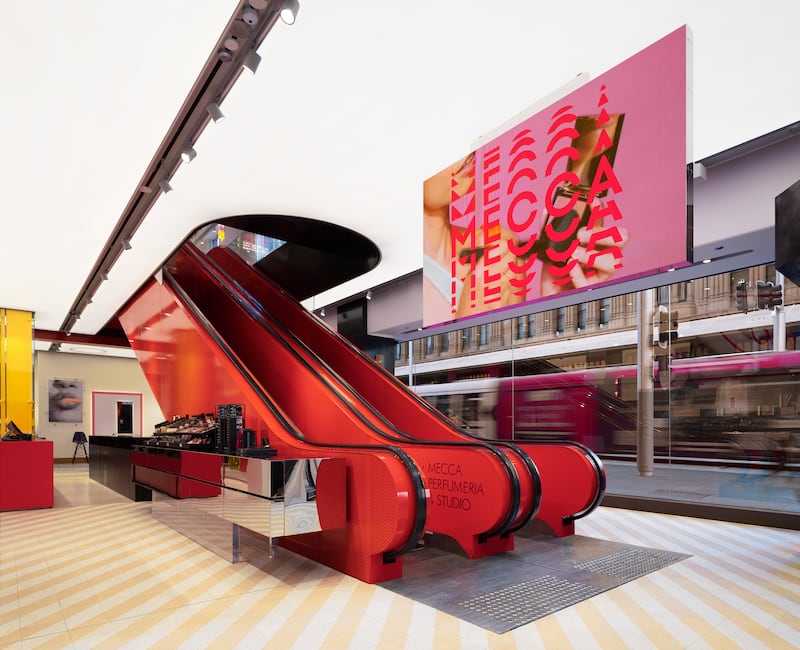
“We worked with Jim to set the next goal, which is to be the world’s most-loved beauty destination in 25 years’ time,” says Horgan. “Our goal is to embrace as many customers as possible, wherever they may be, and to challenge the boundaries of beauty as they currently stand.”
If the company overextends itself in pursuit of such a lofty ambition — or makes a misstep in the process — its leaders seem unruffled by the prospect.
“At Mecca we do the wrong things for the right reasons all the time,” Blythe told BoF, suggesting that it’s a consequence of the company culture.
“We would over invest in a customer experience way above and beyond what any other brand would do. Because we’re a family-run business, you really can make those big bets,” she explained. “[In other businesses] there will be a cut-off where you’d say, ‘too much money is being invested here, let’s stop and just put an MVP (minimum viable product) out there,’ whereas we would keep going until it was really exceptional.”
Examples of this kind of outcome include the two iterations of Meccaland, an immersive, three-day ticketed festival of beauty first held in Melbourne in 2018 six months before Sephora debuted its Sephoria event in Los Angeles. Dubbed by some ‘the Coachella for cosmetics,’ Meccaland first issued tickets for 5000 visitors, selling out in 60 minutes. The following year three times the number attended the Sydney event.
“The joy of being [a private company] is we can take more risks,” said Horgan. “We have a mantra, ‘fail fast, fail forward.’ If you’re not [ever] failing, you’re not trying hard enough.”
This week’s round-up of global markets fashion business news also features Latin American mall giants, Nigerian craft entrepreneurs and the mixed picture of China’s luxury market.
Resourceful leaders are turning to creative contingency plans in the face of a national energy crisis, crumbling infrastructure, economic stagnation and social unrest.
This week’s round-up of global markets fashion business news also features the China Duty Free Group, Uniqlo’s Japanese owner and a pan-African e-commerce platform in Côte d’Ivoire.
Affluent members of the Indian diaspora are underserved by fashion retailers, but dedicated e-commerce sites are not a silver bullet for Indian designers aiming to reach them.